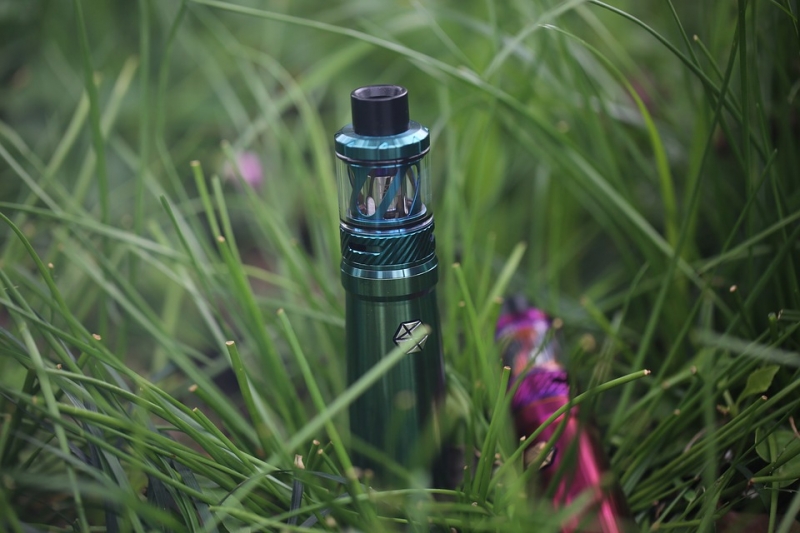Just last month, Illinois became the first state to legalize the sale and use of marijuana through its legislature. Including Illinois, 11 states have now legalized marijuana for recreational use, resulting in fast-paced growth of the cannabis industry across the United States. However, as with most new industries, the increased consumption of cannabis products has brought on new sustainability challenges.
Currently, one of the most popular ways to use the newly legalized substance is through vaping. Unlike traditional smoking, this process works by heating the cannabis just enough to vaporize the active ingredients (cannabinoids and terpenes), which users are able to inhale without actually combusting the substance. Vaping has thus been advertised as a “healthier” alternative to traditional smoking, as it prevents exposure to the harsher, lung-weakening byproducts of combustion. More people have been trading-in their pipes for pens: in states like Colorado and Washington, vape pens account for as much as 15% of the cannabis market.
 The rise of the vape pen, however, has created a serious environmental concern. Most available models of vape pens currently rely on the use of disposable cartridges of cannabis oil—sometimes referred to as vape pods, which users must purchase separately. While many enthusiasts love the opportunity for variety and customization these cartridges offer, they have created a Keurig cup-esque problem for the industry, creating an excess of plastic waste in the form of 1 ml pods. To make matters worse, despite the fact that vape cartridges are often manufactured from recyclable materials, it is illegal to recycle them in most states.
The rise of the vape pen, however, has created a serious environmental concern. Most available models of vape pens currently rely on the use of disposable cartridges of cannabis oil—sometimes referred to as vape pods, which users must purchase separately. While many enthusiasts love the opportunity for variety and customization these cartridges offer, they have created a Keurig cup-esque problem for the industry, creating an excess of plastic waste in the form of 1 ml pods. To make matters worse, despite the fact that vape cartridges are often manufactured from recyclable materials, it is illegal to recycle them in most states.
The Case of California
California is well known for its progressive environmental laws. The state has often been a trailblazer in issues like climate change, natural resource protection, and waste management. However, this has not been the case in its fast-growing cannabis industry.
In the early days of the new recreational market, following the passage of Proposition 64 in 2016, industry innovators, concerned with the environmental impacts of their products, began forming their own recycling programs. Companies like OMG Farm and Bloom Farm set up collection boxes at the different dispensaries their vape pens were sold in to ensure that each component of their disposed products were properly recycled or refurbished. However, in January 2018, when the state launched new emergency cannabis regulations, the state also cancelled the individual recycling programs.
These new regulations set stringent rules for the management of cannabis waste. Under this new regulatory regime, dispensaries became obligated to destroy all cannabis products returned to their stores. The law required that all returned cannabis products be rendered “unrecognizable and unusable” and then hauled away by a state-certified cannabis waste manager. The law’s intention was to prevent individuals from collecting usable cannabis waste from dump sites. However, the destruction process not only renders portions of the pen (including the battery and the cartridges) unsalvageable and unrecyclable, but can also be incredibly time-consuming and expensive. As a result, dispensaries have largely banned the return of their products to their stores, leaving consumers with the responsibility for disposal. By lacking the expertise to properly dispose of the pen and the credentials to return cartridges to a state-sanctioned cannabis waste disposal facility, users have generally just thrown their used pens and pods in the garbage.
Many environmentally conscious consumers and industry officials alike had hoped that these burdensome requirements would disappear following the introduction of permanent regulation. However, in January 2019, when the California Bureau of Cannabis Control issued its new set of finalized regulations, Section 5054 affirmed the previous emergency requirements.
Some companies have tried to find innovative ways around the law, attempting to partner with disposal facilities to make their products more sustainable as a whole, but how to dispose of the pen’s pesky cartridges is unclear.
Progress Elsewhere
Most other states have followed California’s example, creating similarly well-intentioned regulatory barriers to vape pen recycling. One state however has managed to make progress on this pressing issue.
In 2012, Colorado became the first state to legalize recreational marijuana usage; now, they are taking the lead again. This past May, Colorado passed Senate Bill 19-224, expressly granting licensed organizations (like dispensaries) the power to collect cannabis waste for recycling. As a result, Colorado now has a variety of flourishing recycling options.
With Colorado’s legislation now in full swing, many industry professionals in other states are renewing their lobbying efforts in hopes that their states will follow suit. As more states begin cultivating their budding new industries, it will be up to mature markets like Colorado and California to set a good example.
Learn about some of the work ELI is doing in this space here, or visit ELI's Innovation Lab webpage.
